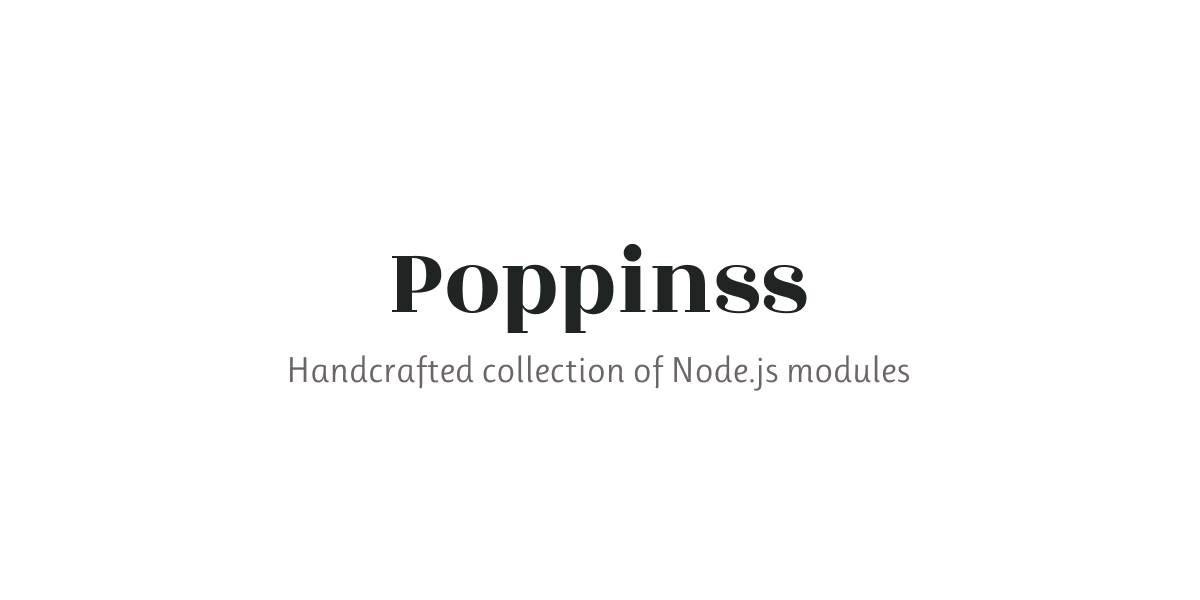Manager Pattern
Implementation of the Manager pattern used by AdonisJS





Manager pattern is a way to ease the construction of objects of similar nature. To understand it better, we will follow an imaginary example through out this document.
Table of contents
Scanerio
Let's imagine we are creating a mailing library and it supports multiple drivers like: SMTP, Mailgun, PostMark and so on. Also, we want the users of our library to use each driver for multiple times using different configuration. For example:
Using the Mailgun driver with different accounts. Maybe one account for sending promotional emails and another account for sending transactional emails.
Basic implementation
The simplest way to expose the drivers, is to export them directly and let the consumer construct instances of them. For example:
import { Mailgun } from 'my-mailer-library'
const promotional = new Mailgun(configForPromtional)
const transactional = new Mailgun(configForTransactional)
promotional.send()
transactional.send()
The above approach works perfect, but has few drawbacks
- If the construction of the drivers needs more than one constructor arguments, then it will become cumbersome for the consumer to satisfy all those dependencies.
- They will have to manually manage the lifecycle of the constructed objects. Ie
promotional and transactional in this case.
Using a Manager Class
What we really need is a Manager to manage and construct these objects in the most ergonomic way.
Step1: Define a sample config object.
First step is to move the mappings to a configuration file. The config mimics the same behavior we were trying to achieve earlier (in the Basic example), but defines it declaratively this time.
const mailersConfig = {
default: 'transactional',
list: {
transactional: {
driver: 'mailgun',
},
promotional: {
driver: 'mailgun',
},
},
}
Step 2: Create manager class and accept mappings config
import { Manager } from '@poppinss/manager'
class MailManager implements Manager {
protected singleton = true
constructor(private config) {
super({})
}
}
Step 3: Using the config to constructor drivers
The Base Manager class will do all the heavy lifting for you. However, you will have to define certain methods to resolve the values from the config file.
import { Manager } from '@poppinss/manager'
class MailManager implements Manager {
protected singleton = true
protected getDefaultMappingName() {
return this.config.default
}
protected getMappingConfig(mappingName: string) {
return this.config.list[mappingName]
}
protected getMappingDriver(mappingName: string) {
return this.config.list[mappingName].driver
}
constructor(private config) {
super({})
}
}
Step 4: Move drivers construction into the manager class
The final step is to write the code for constructing drivers. The Base Manager uses a convention for this. Anytime the consumer will ask for the mailgun driver, it will invoke createMailgun method. So the convention here is to prefix create followed by the camelCase driver name.
import { Manager } from '@poppinss/manager'
class MailManager implements Manager {
public createMailgun(mappingName, config) {
return new Mailgun(config)
}
public createSmtp(mappingName, config) {
return new Smtp(config)
}
}
Usage
Once done, the consumer of the Mailer class just needs to define the mappings config and they are good to go.
const mailersConfig = {
default: 'transactional',
list: {
transactional: {
driver: 'mailgun',
},
promotional: {
driver: 'mailgun',
},
},
}
const mailer = new MailManager(mailersConfig)
mailer.use('transactional').send()
mailer.use('promotional').send()
- The lifecycle of the mailers is now encapsulated within the manager class. The consumer can call
mailer.use() as many times as they want, without worrying about creating too many un-used objects. - They just need to define the mailers config once and get rid of any custom code required to construct individual drivers.
Extending from outside-in
The Base Manager class comes with first class support for adding custom drivers from outside-in using the extend method.
const mailer = new MailManager(mailersConfig)
mailer.extend('postmark', (manager, mappingName, config) => {
return new PostMark(config)
})
The extend method receives a total of three arguments:
- The
manager object is the reference to the mailer object. - The name of the mapping inside the config file.
- The actual configuration object.
- The
callback should return an instance of the Driver.
Driver Interface
The Manager class can also leverage static Typescript types to have better intellisense support and also ensure that the drivers added using the extend method adhere to a given interface.
Defining Drivers Interface
Following is a dummy interface, we expect all drivers to adhere too
interface DriverContract {
send(): Promise<void>
}
Passing interface to Manager
import { Manager } from '@poppinss/manager'
import { DriverContract } from './Contracts'
class MailManager implements Manager<DriverContract> {}
Mappings Type
The mappings config currently has any type and hence, the mailer.use method cannot infer correct return types.
In order to improve intellisense for the use method. You will have to define a type for the mappings too.
type MailerMappings = {
transactional: Mailgun
promotional: Mailgun
}
type MailerConfig = {
default: keyof MailerMappings
list: {
[K in keyof MailerMappings]: any
}
}
const mailerConfig: MailerConfig = {
default: 'transactional',
list: {
transactional: {
driver: 'mailgun',
},
promotional: {
driver: 'mailgun',
},
},
}
Finally, pass the MailerMappings to the Base Manager class
import { DriverContract, MailerMappings } from './Contracts'
class MailManager implements Manager<DriverContract, DriverContract, MailerMappings> {}
Once mailer mappings have been defined, the use method will have proper return types.
Mapping suggestions

Return type












